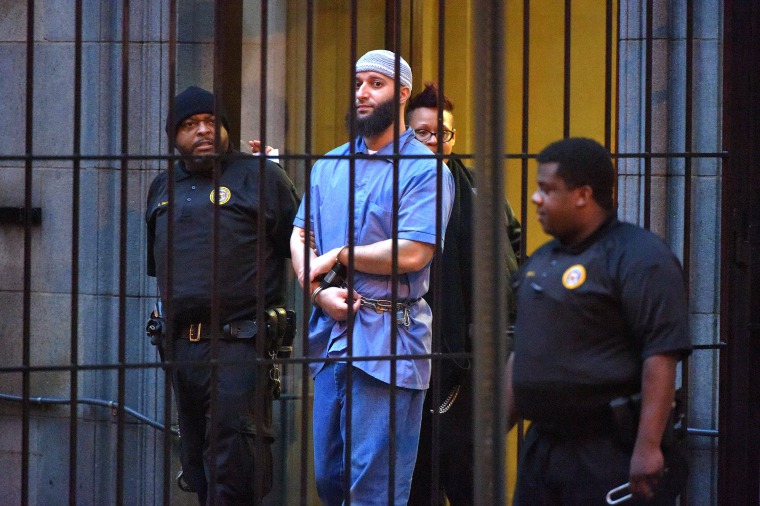Adnan Syed, whose murder conviction was called into question by the popular podcast "Serial," can get another shot to prove his innocence, a Maryland appeals court ruled Thursday.
Two years ago, a judge vacated Syed's conviction and ordered a new trial. Prosecutors appealed, maintaining that there was no new evidence in the case. But the Maryland Court of Special Appeals, the state's second-highest court, rejected the state's argument — putting Syed's fate back in the hands of a lower court for a new trial.
Syed has been in prison for nearly 20 years. His attorney, Justin Brown, tweeted his excitement moments after the 138-page ruling was released.
The first season of "Serial" in 2014 dove into the question of Syed's potential innocence in the 1999 murder of an ex-girlfriend, Hae Min Lee. Now 36, Syed is currently serving a life sentence behind bars.
Chief Judge Patrick Woodward wrote that Syed's original attorney during his initial trial in 2000 failed to call a witness named Asia McClain, which "prejudiced Syed's defense."
The Maryland attorney general's office did not immediately say whether it would appeal the ruling to the Maryland Court of Appeals, the state's highest court.
Brown said at a news conference Thursday that he last spoke to Syed just before the ruling was released. He said that if state prosecutors do not try to appeal the court's latest opinion, then getting to a trial "can move pretty fast."
"If we get back in court for a jury trial, we like our chances," Brown added. "We like them a lot."
McClain had testified at Syed's post-conviction hearing, saying that despite writing two letters and submitting an affidavit for the 2000 trial to Christina Gutierrez, Syed's trial attorney, no one ever reached out to her.
She said she was with Syed in the high school library at the time prosecutors pinned him to Lee's murder.
Syed and Lee were seniors at the same Baltimore high school. Prosecutors claimed that after Lee began dating someone new, Syed strangled her in a fit of rage, then dumped her body in a city park.
During the original trial, prosecutors largely used the testimony of a witness who said he helped Syed dig a hole for Lee's body and cellphone records putting him in the area where the body was buried.
There was no eyewitness testimony or physical evidence from the scene linking Syed to the murder. But testimony from a mutual friend of Lee's and Syed's was used to help corroborate the cellphone records indicating where Syed had supposedly been when Lee was killed.
The podcast was downloaded more than five million times and raised doubts about whether he committed the crime.
Brown on Thursday again credited "Serial" with helping Syed's case.
"If you recall, the first time around, we were pursuing the alibi issue but we were unable to locate our alibi witness, and 'Serial' kind of shook the trees and that got us to get in contact with Asia McClain," Brown said. "In that way 'Serial' was huge."
As the case gained worldwide attention because of the podcast, Brown tried to get Syed freed on bail, but that was denied in 2016. He said he would consider a new effort to win Syed bail.

